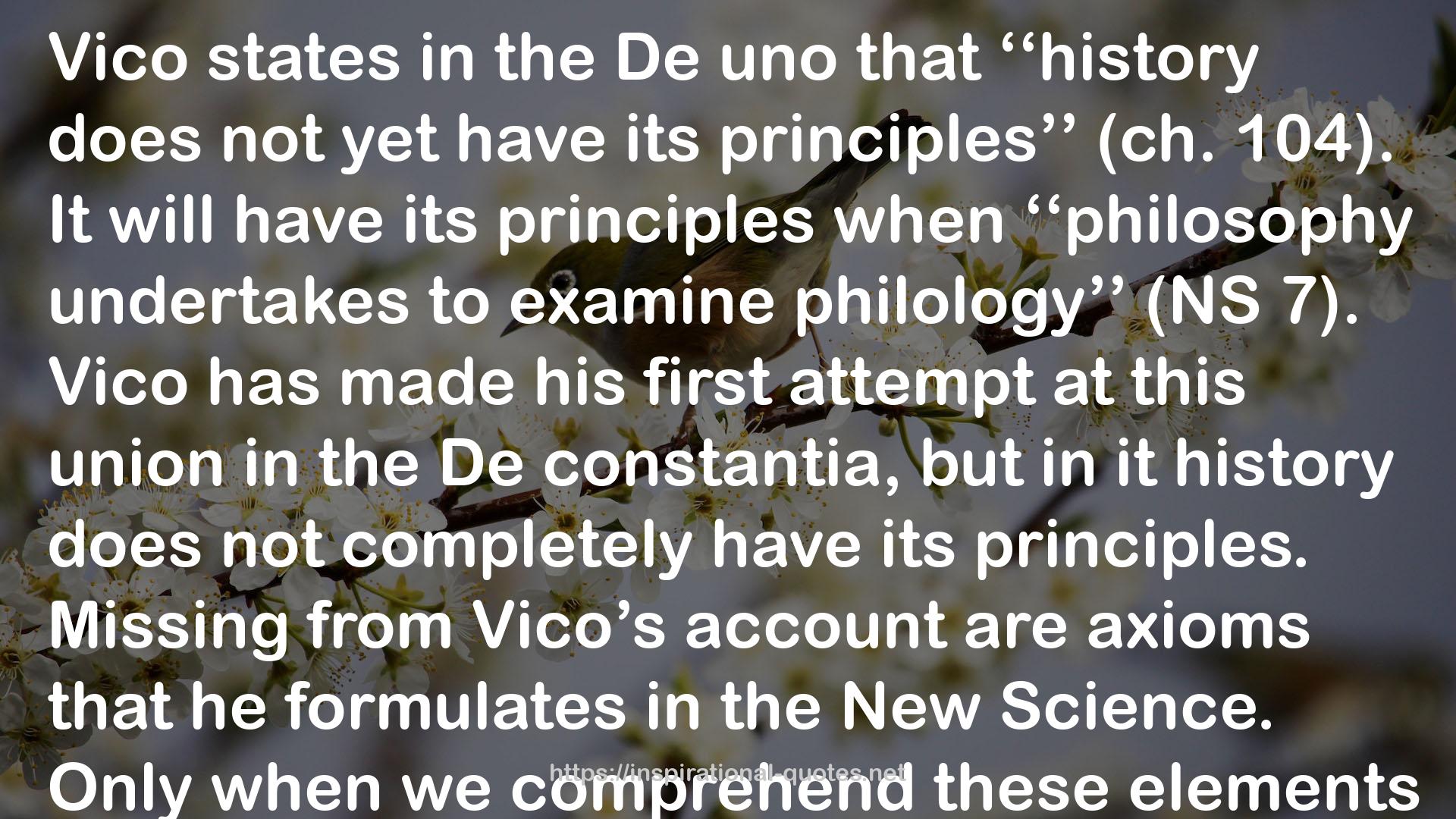" Vico states in the De uno that ‘‘history does not yet have its principles’’ (ch. 104). It will have its principles when ‘‘philosophy undertakes to examine philology’’ (NS 7). Vico has made his first attempt at this union in the De constantia, but in it history does not completely have its principles. Missing from Vico’s account are axioms that he formulates in the New Science. Only when we comprehend these elements do we have a full basis from which to grasp the union between philosophy and philology. It falls to the reader of the New Science to make the science for himself, but in this work Vico has presented the reader with a full philosophy of history with which to do so. In the De constantia it is symptomatic that philosophy and philology are treated in two separate books. Their union is ultimately at the hands of the jurisprudent, who must look to each and then combine them in the process of interpretation of the law. "
― , Knowledge of Things Human and Divine: Vico’s New Science and "Finnegans Wake"
